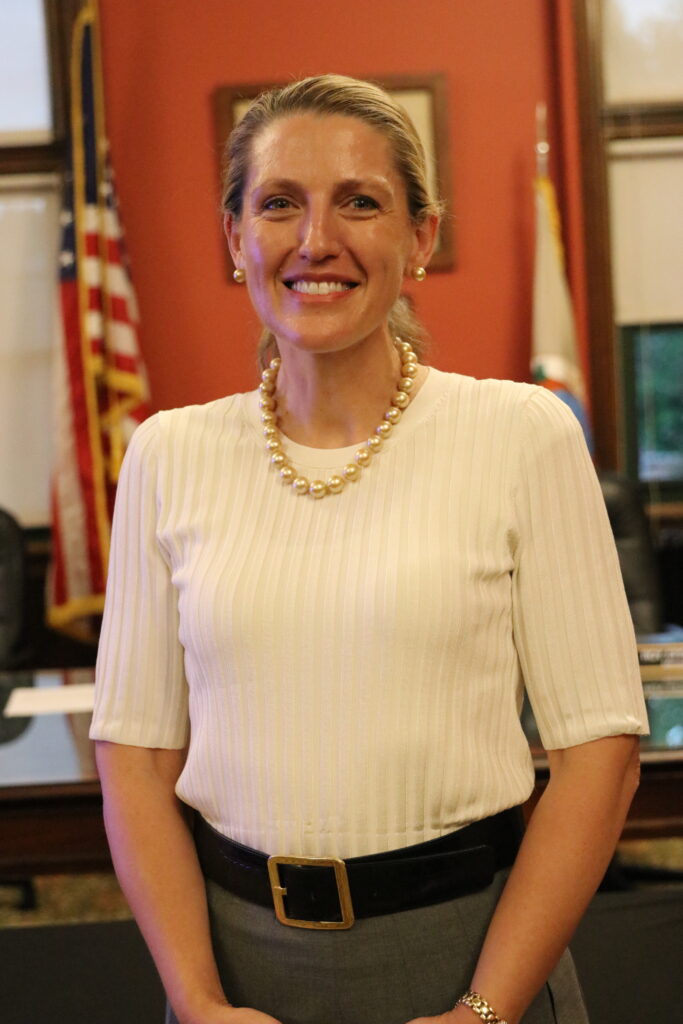Photo: Elizabeth Dionne
Elizabeth Dionne, who helped transform the Belmont Select Board into a more business friendly body and who actively supported a pro-economic growth agenda for the town, announced she will not seek re-election to her post in the coming Town Election in April, 2026.
“Serving on the Select Board has been one of the greatest honors of my life,” Dionne said in a press release dated Nov. 17. “This community’s trust has meant everything to me, and I am immensely proud of the work we have accomplished together.”
Dionne – who is in her last year of her first three-year term on the board – said she expects to complete her current term.
While she did not elaborate her reason for leaving the board, “it doesn’t end my commitment to public service. I will be announcing future plans shortly.” Speculation of Dionne’s next move range from a run for higher office or a move to a state agency.
“Elizabeth will be hard to replace. She’s a reformer who believes that Belmont can and should tackle its most deep-seated problems,” said fellow Select Board member Taylor Yates.
An attorney who advocates for special education students, the Wellesley Road resident made a name in town as a member of Town Meeting, Warrant Committee and as chair of the Community Preservation Committee before joining the Select Board in 2023 winning the seat unopposed.
During her tenure, Dionne said she brought “thoughtful fiscal stewardship, commitment to transparent government, and [a] focus on long-term planning for Belmont’s financial health and infrastructure.” A central theme of Dionne’s stewardship has been revamping the zoning bylaws to promote a “friendlier” environment for businesses and developers by promoting commercial investment.
“I remain deeply committed to Belmont and its future,” Dionne added. “I look forward to supporting a smooth transition and to continuing my work as an active and engaged resident. This town is full of talented, passionate people, and I am confident the next Select Board Member will continue building on the significant progress we’ve already made.”
With Dionne’s exit, the first question many are asking is who is likely to run for her seat. When asked, many residents well versed in local politics responded that there is no clear front runner, and those who would be seen as a potential candidate have opted out when approached.
“The election to replace her may well be about whether or not we’re willing to continue making the changes needed to fix our Town,” said Yates.
